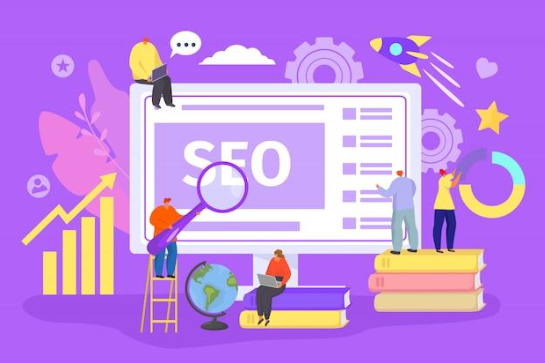Next-Level SEO: Staying Ahead in the Digital Race

Search Engine Optimization (SEO) has become a vital and dynamic approach in the fast-paced digital environment of today, where online exposure can make or destroy a corporation. To guarantee a top place on search engine results pages (SERPs) tomorrow, it could be necessary to build on what worked yesterday. To succeed in the digital race, businesses must embrace the concept of next-level SEO. This multifaceted approach goes beyond traditional tactics and adapts to the ever-changing algorithms of search engines.
The Evolution of SEO: Beyond Keywords and Backlinks
Gone are the days when SEO was solely about stuffing keywords and acquiring as many backlinks as possible. While these factors still hold importance, modern SEO is far more intricate. Intuitive user intent recognition has advanced with Google and other search engines and delivering relevant results. Thus, your SEO strategy must focus on user experience, content quality, and authority.
1. User-Centric SEO: Beyond Keywords
User experience is paramount. Google's algorithms take into account factors like page load speed, mobile-friendliness, and overall site usability. To stay ahead, ensure your website is responsive and provides a seamless experience across devices. This includes optimizing voice search, as more users rely on virtual assistants like Siri and Alexa to find information.
2. Content Excellence and Relevance
Content is the backbone of SEO. High-quality, informative, and engaging content attracts readers and garners authority in your niche. Create content that answers user queries comprehensively. This might involve long-form articles, videos, infographics, or even interactive tools.
3. Establishing Authority and E-A-T
Google evaluates your Expertise, Authoritativeness, and Trustworthiness (E-A-T). Back up your content with credible sources and links to reputable websites. Guest posting on influential platforms can also enhance your authority within your industry.
4. Technical SEO: Optimizing for Crawlers
While user experience is crucial, technical SEO ensures search engine crawlers can efficiently navigate and index your site. Pay attention to XML sitemaps, robots.txt files, canonical tags, and schema markup to provide search engines with a clear understanding of your content.
5. Beyond Backlinks: Building Relationships
Backlinks remain important, but the emphasis has shifted from quantity to quality. Focus on building genuine relationships with industry influencers and aim for authoritative backlinks. Collaborative content, influencer partnerships, and guest appearances on podcasts are effective strategies.
6. Data-Driven Decision Making
Next-level SEO relies heavily on data analysis. Leverage tools to monitor your website's performance, track keyword rankings, and understand user behavior. Utilize this information to adjust your plan, spot patterns, and find new situations.
7. Local SEO: Capturing Nearby Opportunities
Local SEO is a gold mine for companies with physical locations.
Optimize your Google My Business listing, encourage customer reviews, and ensure consistent NAP (Name, Address, Phone number) information across platforms.
8. The Mobile-First Imperative
Online searches are conducted mostly on mobile devices. The mobile version of your site will be given priority for indexing and ranking thanks to Google's adoption of a mobile-first indexing strategy. Make sure your website is user-friendly and adaptable to mobile devices.
9. Video SEO: The Visual Edge
Videos are gaining traction in search results. Create and optimize video content on platforms like YouTube. Craft compelling titles, descriptions, and tags while incorporating relevant keywords.
10. Adaptability: The Key to Future-Proofing
Perhaps the most critical aspect of next-level SEO is adaptability. The search engine algorithms are always changing. Keep a pulse on the latest trends, algorithm updates, and industry shifts to stay ahead. Flexibility and a willingness to evolve will be your strongest allies.
In the ever-evolving digital landscape, next-level SEO is the bridge that connects businesses with their target audience. By embracing user-centric strategies, producing high-quality content, nurturing relationships, and staying agile, you can position your brand at the forefront of the digital race and secure long-term success.
Share on
Similar topics:
Similar blogs

SEO Evolution: Adapting to Search Engine Algorithms

SEO Decoded: From Algorithms to Page Rankings
Grow Your Referral and Organic Traffic
Choose a style, use sections to build pages and lastly, add your copy. It only takes a few clicks toget your site ready to go.